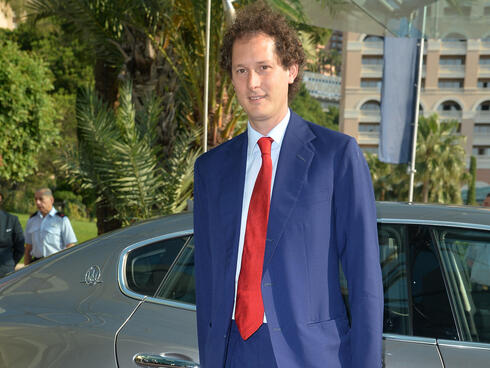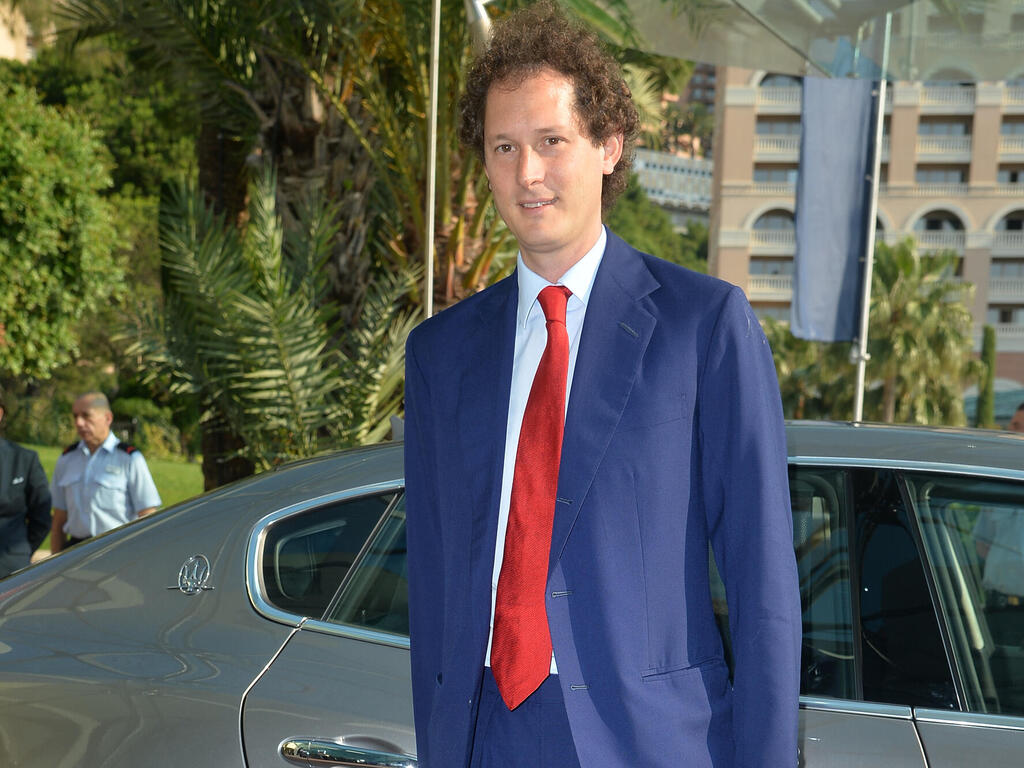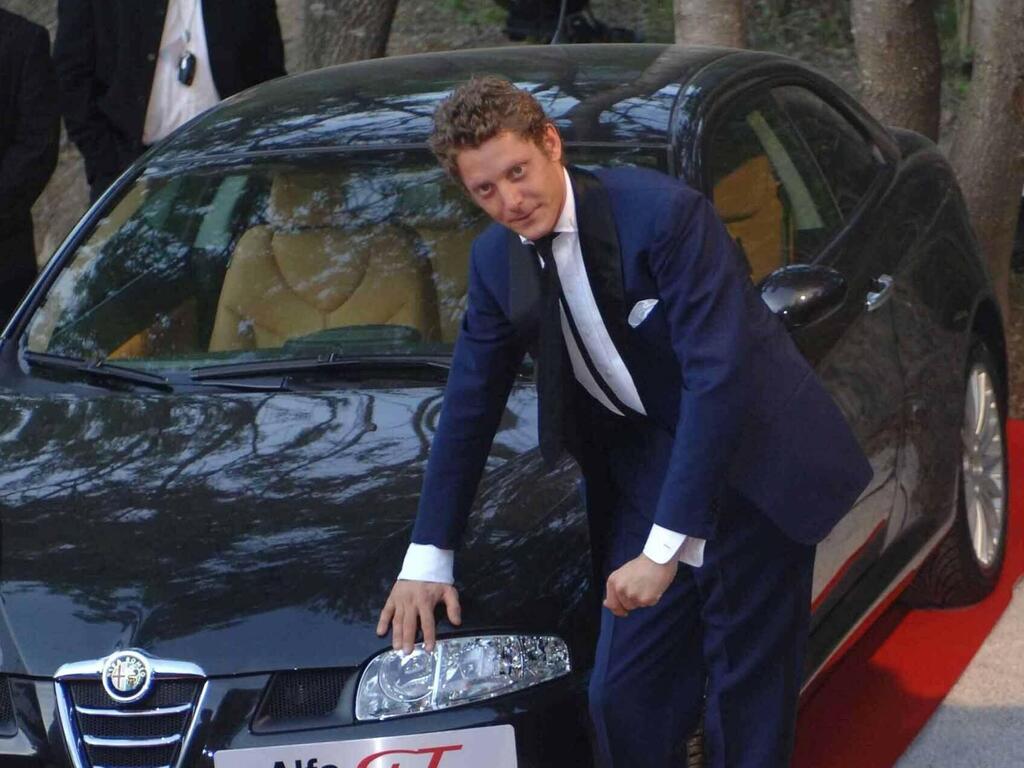
The wild ride of Fiat’s Jewish heirs: From billionaire feuds to mysterious accidents
The Elkann family's grip on the Fiat empire faces a legal storm as Margherita Agnelli challenges her children's inheritance, all while wild son Lapo faces his own scandals.
Last week, an Italian court ordered the confiscation of €75 million from the assets of the Elkann family—a Jewish family with deep ties to the automotive world. Reports suggest that the funds belong to John Elkann, chairman of Ferrari, his brother Lapo Elkann, and their sister Ginevra.
The Elkanns, often referred to as "Italy’s Kennedy family," have a history marked by dramatic highs and lows. Their story begins with one of the most powerful figures in the global auto industry—Giovanni Agnelli. Agnelli, hailing from a wealthy family in Turin, co-founded Fiat in 1899, which stands for Fabrica Italiana Automobili Torino (Italian Automobile Factory of Turin).
Agnelli initially invested a modest $400 in the fledgling company, with the aim of providing Italians and Europeans with affordable cars, much like what Henry Ford was doing in the U.S. Fiat went public in 1906, and Agnelli gradually bought out his co-founders. By 1927, he had established Exor, a holding company that today manages a vast array of businesses, including stakes in truck manufacturer IVECO, Juventus Football Club, electronics giant Philips, and fashion house Christian Louboutin.
In 2021, after the formation of Stellantis, Exor became a major shareholder in the conglomerate, which also includes the descendants of French industrialist Armand Peugeot. Exor currently holds a 14.9% stake in Stellantis.
The Agnelli legacy
Giovanni Agnelli had two children: Edoardo and Aniceta Agnelli. Edoardo’s seven children largely distanced themselves from the family business, preferring lives of luxury, except for one—Giovanni (or Gianni) Agnelli, born in 1921. Known as "L’Avvocato" (The Lawyer), Gianni inherited a controlling interest in Fiat and became the most powerful man in Italy, a country where, by the 1930s, the saying "What’s good for Fiat is good for Italy" had become a common refrain. During the 1950s, Fiat revolutionized Italian motoring with its iconic Fiat 500, maintaining dominance in the European auto industry until the 1990s.
Gianni Agnelli was not just Italy’s richest man; he was also known for his hedonistic lifestyle. Biographies describe him as a charming womanizer, obsessed with the finer things in life—tailored suits, luxury watches, and high-performance cars. Agnelli knew his wealth placed him above the reach of the law. For fun, he would race through the streets of Turin in his Fiat Dino at 180 kilometers per hour, often laughing in the faces of the police officers who dared to pull him over.
The son Influenced by Khamenei and his mysterious death
Gianni Agnelli had two children: Edoardo Agnelli II and Margherita Agnelli. Edoardo converted to Islam and changed his name to Hisham Aziz while living in the U.S. His "close friendship" with Iran’s Supreme Leader, Ali Khamenei, further alienated him from his family, and his chances of inheriting Fiat dwindled. In 2000, at age 46, Edoardo was found dead under a bridge near Turin. His family arranged a swift burial, waiving an autopsy, which sparked rumors and conspiracy theories ranging from suicide to Mafia involvement, or even a cover-up by the Agnelli family.
In the years following his death, questions persisted. His bodyguard was absent during the incident, and despite numerous cameras at the scene, no footage of Edoardo leaping from the so-called "Suicide Bridge" was ever found, nor were any witnesses.
Margherita Agnelli: The key player
Margherita Agnelli, born in 1955, is the sole heir to the Agnelli fortune. In 1975, she married Alain Elkann, a prominent Jewish intellectual and journalist. Alain, a descendant of wealthy Jewish families from France and Italy, has written extensively about Judaism and Italian Jewish history. In a 2010 article, he urged Jews in the Diaspora to settle in Israel, stating, "Israel is their home, and they have no other alternative."
Alain and Margherita had three children: John, Lapo, and Ginevra. Lapo, known for his wild lifestyle, is the most flamboyant of the three. He proudly sports a large Star of David tattoo but has also struggled with drug addiction and staged his own kidnapping by the Mafia in 2016, which he later apologized for, calling it a prank. Lapo also survived a mysterious car accident on Israel’s Route 1 in 2019, during which he was found unconscious and flown to Italy on a private jet. In interviews, he claimed he remembered nothing of the incident.
Ginevra Elkann ventured into filmmaking and has two children. But the most significant of the siblings is John Elkann. Originally, he wasn’t meant to succeed Gianni Agnelli—that role was reserved for Gianni’s nephew, Giovanni Alberto Agnelli, who died of cancer in 1997. As a result, John, the "good boy" of the family, inherited the mantle. Married with three children, John engages in philanthropic efforts, rumored to donate to Israel, and now leads Ferrari and Stellantis as CEO of Exor.
A family at war
Today, the Elkann siblings are embroiled in a new conflict. After Gianni Agnelli’s death, their mother, Margherita, sold her shares in Fiat to her children for €1.2 billion. She later regretted the decision and sought to reclaim her share, but her children refused. Margherita alleges that her own mother, Marella Caracciolo (Gianni’s wife), helped transfer control of the family’s holding company to the Elkanns in 2004.
Marella, who passed away in 2019, was a Swiss citizen, allowing her to avoid paying taxes in Italy. However, Margherita claims her mother actually lived in Italy, and after hiring private investigators, she managed to prove this to the Italian authorities. If successful, Margherita could inherit €4.8 billion, but for now, she’s battling her children in Italian courts.
Beyond money: A fight for legacy
The dispute is not just about money. The family owns a priceless art collection, including works by Picasso and Monet. Italian authorities are also watching closely. If Marella lived in Italy during her final years, as Margherita claims, the government may be entitled to a significant tax payment. The legal battle could drag on for years, capturing public attention in Italy.
The question remains: will the Elkanns pay up, or will their mother’s whistleblowing lead to a reckoning? Meanwhile, Italy’s relationship with Fiat has cooled. In recent years, Stellantis has outsourced car production abroad, igniting accusations of cultural appropriation by the Italian government. The days when Fiat, and by extension, the Elkanns, were untouchable may be long gone.















